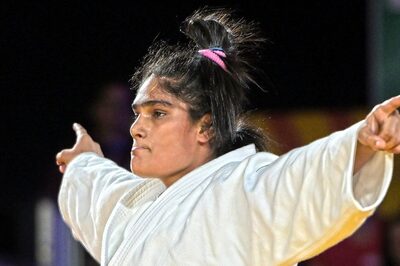
views
New Delhi, Aug 27: Medical experts on Friday welcomed the Delhi government’s decision to reopen schools, colleges and coaching institutes in the national capital but advised parents to tread with caution by teaching Covid protocols to children. Following a marked improvement in the COVID-19 situation here, the Delhi government on Friday announced that schools for classes 9 to 12, colleges and coaching institutions will reopen from September 1. Delhi Deputy Chief Minister Manish Sisodia said teaching and learning activities will continue to be conducted in a blended mode.
Dr Rahul Nagpal, Director, Pediatrics and Neonatology at Fortis Hospital in Vasant Kunj said schools have to open in a staggered manner with proper guidelines in place. “What I am seeing is that children are completely lost and we have to look at their mental faculties. Children have to be educated about the new normal by parents. “As for schools, they have to ensure proper ventilation in classrooms which is a problem and they might go for hybrid education, some of it might be offline and online,” Nagpal told PTI.
He added that schools will have to form SoPs for entry and exit of students and make vaccination of staffers mandatory. Dr Sarita Sharma of PSRI Hospital said it is mandatory to immunise the staff against COVID-19 before opening schools.
“We don’t have any vaccines against COVID-19 for children available in India as of now but after taking proper precautions and ensuring coronavirus-appropriate behaviour, schools can be reopened. “All the teachers, caregivers, ancillary staff of schools should be fully immunised against Covid before opening schools,” the senior paediatric consultant said. Schools in the national capital were ordered shut last year in March ahead of a nationwide lockdown to contain the spread of coronavirus.
While several states started partial reopening of schools from October last year, the Delhi government allowed reopening in January only for classes 9 to 12. However, schools were again completely shut in April following an aggressive second wave of COVID-19. According to Dr (Maj) Manish Mannan, HOD – Paediatrics and Neonatology at Paras Healthcare, the side effects of isolation in children are far severe than that of Covid infection.
“Mental illnesses, obesity, aggressive behaviour, sleep disorders and other cognitive problems have been rising at an alarming rate which has been going unnoticed. The physical exercises, the brain quiz classes have gone missing during the last year, even after parents tried their best to meet the needs,” Mannan said. He noted that interaction and involvement that are only possible in a classroom are a “great source of learning which has gone missing”. “ICMR stated that kids have a better metabolism to handle viruses, and I believe that too by taking care of their health and nutrition we should allow kids to go to school. It’s good for their mental as well as physical wellbeing,” Mannan added.
While Sisodia on Friday said no final decision has been taken regarding junior classes and a call will be taken after analysing the effect of reopening schools for senior classes, sources indicated that schools for classes 6 to 8 may reopen from September 8. Although the smaller children may not be severely affected by COVID-19, Dr Gauri Agarwal of Seeds of Innocence said they may become carriers and affect people at home.
“Opening schools may be a good idea for young adults/teenagers as they will be more careful about following Covid protocols. “With smaller children, we have seen that though they are not vulnerable to severe disease, they can become carriers of the virus that can affect people at home — especially the elderly, the unwell and the pregnant women,” Agarwal said. She suggested that it was important to teach Covid protocols to children but should not expect them to be able to follow them perfectly. “So, probably it would be better to wait before we open primary and lower sections of the schools,” she added. Dr Vikramjeet Singh, Consultant-Internal Medicine, Aakash Healthcare said access to school for younger children must be carefully planned as staying away from natural, socialising environments for a prolonged time may affect their social skills and mental health. “Schools may plan supervised, restricted and staggered physical meetings for children in lower sections to ensure Covid protocols are maintained.
“With the extent of discussions around Covid protocols, older children may be able to follow social distancing norms and other measures. So, allowing them staggered access to the classroom should be fine. Some schools in Gurgaon have already experimented with this idea,” he said.
Disclaimer: This post has been auto-published from an agency feed without any modifications to the text and has not been reviewed by an editor
Read all the Latest News, Breaking News and Assembly Elections Live Updates here.




















Comments
0 comment